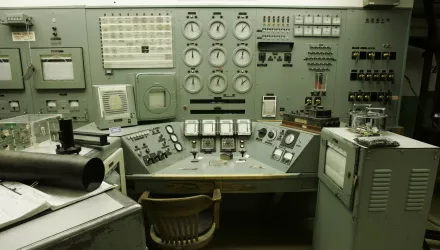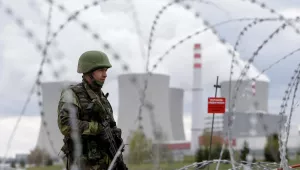"Political-security arrangements in the Persian Gulf based on "balance of power" are incapable of maintaining security and stability in the region, especially since the downfall of the Baathist regime in Iraq. The balance-of-power setting is based on a zero-sum (win-lose) game, as well as the rise of the "relative power" of rival actors. Such a system generates tension, distrust, crises and wars. With the new political-security developments in post-invasion Iraq, the establishment of a system based on a "balance of security" among major regional and transregional actors is a more appropriate approach to the maintenance of stability and security in the region. Balance of security is based on a non-zero-sum (win–win) game and the rise of the "relative security" of rival actors. Such a setting generates peace and stability, cooperation, security and constructive rivalry. Iran and the United States are currently the only two regional and transregional actors that are able to conduct military operations in the Persian Gulf, as well as build political-security coalitions in the region at large. As a result, a new balance should be established between these two main actors. In this context, putting aside for the moment security threats against Iran, the redefining of Iran's regional role in U.S. regional strategy and the eventual acceptance of Iran's regional role are the main factors indispensable to any formulation of a sustainable political-security arrangement in the Persian Gulf.
The prevailing view in the West, especially in the United States, and in the Arab world maintains that "balance of power" is the major guarantee of security and stability in the Persian Gulf region. From this perspective, while the traditional form of balance of power between Iran and Iraq provided security for the Arab states of the Persian Gulf, it favored the interests of foreign actors, especially the United States. Proponents of such a view hold that following the overthrow of the Baathist regime in Iraq and the growth of Iran's role and influence in the region, the international community ought to establish a new kind of balance of power to restrain the Islamic Republic of Iran, and thereby preserve the security of the region. Following its failure to redefine the position of the new Iraq in terms of a new balance of power, the United States has itself tried to play such a role in the region. U.S. efforts to minimize Iran's role within the context of the new balance of power have consequently created another security dilemma in the Persian Gulf. Thus, from the outset of the Iraq crisis in 2003, Iran and the United States have ceaselessly competed with one another to institutionalize and enhance their new roles in the region. Today, actions that Washington considers to be security-enhancing are regarded by Tehran as bringing insecurity to the region. Washington's continued concentration on the balance of power risks disrupting natural power equations, potentially exacerbating the conflict between Iran and the United States and other regional states. If, however, the United States can accept an Iranian role in the region's new security architecture in the form of a balance of security, Washington and Tehran could consequently establish an accommodation that might advance the interests of all concerned — both regional and transregional actors in the Persian Gulf...."
Barzegar, Kayhan. “The Balance of Power in the Persian Gulf: An Iranian View.” Middle East Policy, Fall 2010




